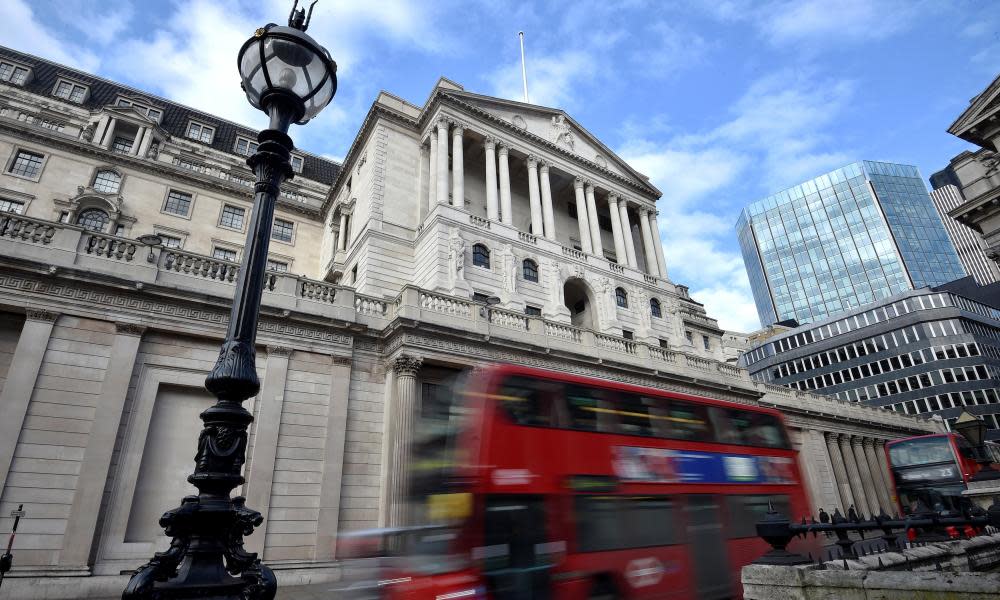The Guardian view on the UK’s workers: divided and conquered | Editorial

Life is getting interesting at the Bank of England. Next month will mark the 10th anniversary of the last time the technocrats of Threadneedle Street raised the official cost of borrowing, but the chances of an interest rate rise are higher than they have been for some while. Mark Carney, the Bank’s governor, thinks the time is not yet ripe for a tightening of policy. He used his delayed Mansion House speech in the City of London this week to voice concerns about the negative impact of higher inflation on consumer spending and the uncertain effects of Brexit negotiations on the economy. But three of the eight members of the Bank’s monetary policy committee took a different view, and they were almost joined by a fourth, the Old Lady’s chief economist, Andy Haldane, who said the time was fast approaching when he would vote for an increase. Mr Haldane’s intervention was significant, not just because he has hitherto been seen as one of the MPC’s most prominent “doves”, nor because his intervention came little more than 24 hours after that of his boss. Rather, it was because the bombshell was dropped at the end of a speech that seemed to argue the opposite.
For years, the Bank of England has been trying to find the answer to a puzzle: why is wage growth so weak even though unemployment keeps coming down? Britain currently has its lowest jobless rate since the mid-1970s, but there has been no sign of an acceleration in earnings growth. Quite the contrary, in fact. At least part of the answer, according to Haldane’s analysis, stems from structural changes in the labour market: a decline in union membership; more self-employment; more zero-hours contracts and more part-time and temporary work. The clock has been turned back not one century but three, so that the world of work in 2017 bears more than a passing resemblance to Britain as it was before the Industrial Revolution. There were no trade unions. Most people were self-employed or worked in a small business. The Uber drivers of that era were the agricultural workers hired only when there were cows to be milked or crops to be harvested. In those pre-industrial days, the relationship between wages and unemployment was strikingly similar to the one seen since the recession of 2008.
The thrust of Mr Haldane’s argument is that workers in an increasingly casualised, de-unionised and atomised labour market find it hard to chisel more money out of their employers even when unemployment is falling and their living standards are being eroded by inflation. If all this is true – which it is – then Mr Carney’s wait-and-see approach to interest rate rises makes sense. The only genuine reason for the Bank to be alarmed about inflation running at 2.9% would be if there was the prospect of workers securing compensatory pay awards and setting off a good old-fashioned wage-price spiral. Not only is there no sign of this happening, tightening policy now could hit the economy when it looks vulnerable on three fronts: from a slowdown in consumption; from political turmoil; and from Brexit uncertainty.
It would be a different story were the government prepared to boost the economy with higher public spending or lower taxes, and there is a strong case for changing the mix of macroeconomic policy so that monetary policy (interest rates and quantitative easing) takes less of the strain and fiscal policy (taxes and spending) plays a bigger role. There is plenty of evidence to suggest that the current mix of ultra-loose monetary policy and over-tight fiscal policy needs to be changed. Chucking copious amounts of cheap money at the UK economy has not led to strong and sustainable growth: rather, it has boosted asset prices, exacerbated the structural weaknesses of the economy by setting off a housing boom, and led to greater inequality. But until the chancellor decides it is time to add substance to the government’s end-to-austerity rhetoric, the Bank of England is the only game in town. Mr Carney is right to be cautious.

 Yahoo News
Yahoo News 
